7 Ways to Make Your Kitchen Non-Toxic and Waste-Free
Did you know that the average American household throws away nearly 40% of its food every year? Or that many common kitchen products, from cleaning supplies to cookware, contain harmful chemicals that can affect your health? If you’re looking to create a healthier, more sustainable kitchen, you’re in the right place. In this article, we’ll explore 7 practical ways to make your kitchen non-toxic and waste-free, helping you protect your family and the planet.
Table of Contents
1. Switch to Non-Toxic Cookware
Why Non-Toxic Cookware Matters
Many traditional non-stick pans are coated with chemicals like PFOA and PTFE, which can release toxic fumes when overheated. These chemicals have been linked to health issues, including hormone disruption and even cancer. By switching to non-toxic cookware, you can reduce your exposure to harmful substances and create a safer cooking environment.
Best Non-Toxic Cookware Options
Here are some excellent alternatives to traditional non-stick pans:
| Cookware Type | Benefits |
|---|---|
| Stainless Steel | Durable, non-reactive, and easy to clean. |
| Cast Iron | Naturally non-stick when seasoned, adds iron to your food. |
| Ceramic | Free of harmful chemicals, lightweight, and eco-friendly. |
| Glass | Non-toxic, great for baking and food storage. |
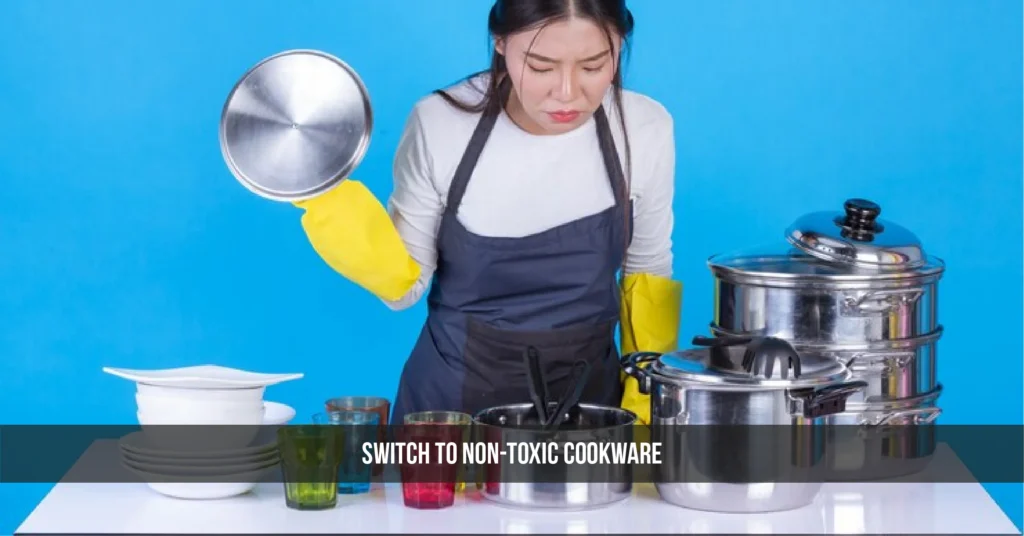
2. Use Eco-Friendly Cleaning Products
The Problem with Conventional Cleaners
Most commercial cleaning products contain harsh chemicals like ammonia, chlorine, and phthalates, which can irritate your skin, eyes, and lungs. These chemicals also end up in our waterways, harming aquatic life.
DIY Natural Cleaning Solutions
Why not make your own cleaning products? They’re simple, affordable, and effective. Here’s a quick recipe for an all-purpose cleaner:
- Ingredients: 1 cup white vinegar, 1 cup water, 10 drops of essential oil (like lemon or tea tree).
- Instructions: Mix in a spray bottle and use for countertops, sinks, and more.
3. Reduce Plastic Use
The Impact of Plastic on Health and Environment
Plastic is everywhere in the kitchen, but it’s not doing us any favors. Chemicals like BPA and phthalates can leach into your food, especially when heated. Plus, plastic waste is a major contributor to pollution, clogging landfills and oceans.
Alternatives to Plastic in the Kitchen
Here are some easy swaps to reduce your plastic use:
- Storage: Use glass jars or stainless steel containers.
- Wraps: Replace plastic wrap with beeswax wraps or silicone lids.
- Utensils: Opt for bamboo or stainless steel instead of plastic.
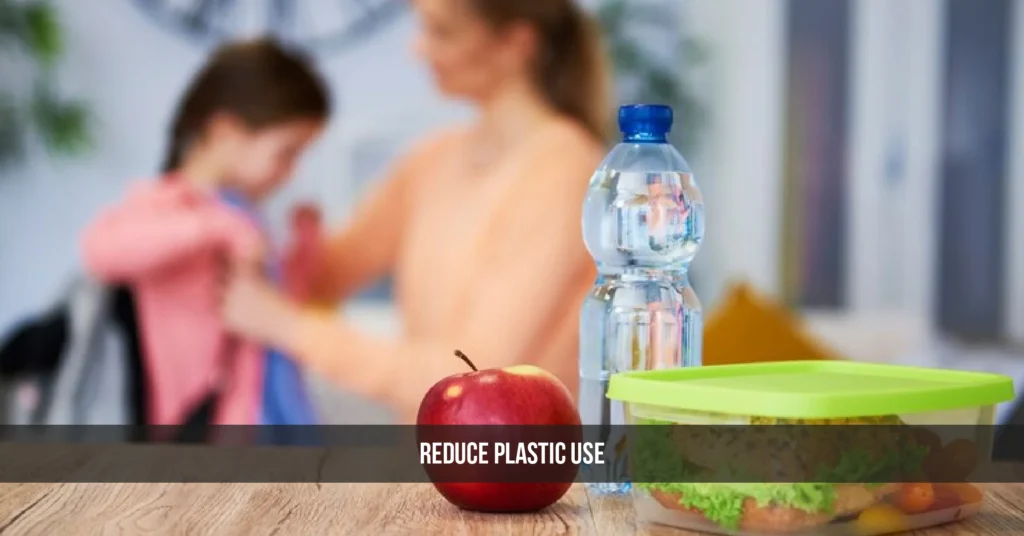
4. Implement a Composting System
Benefits of Composting
Composting is a fantastic way to reduce kitchen waste and create nutrient-rich soil for your garden. It also helps cut down on methane emissions from landfills, making it a win-win for the environment.
How to Start Composting at Home
Starting a compost bin is easier than you think. Here’s a simple guide:
- Choose a Bin: You can buy a compost bin or make one from a plastic container.
- Add Greens and Browns: Greens (like vegetable scraps) provide nitrogen, while browns (like dried leaves) add carbon.
- Turn Regularly: Mix the compost every few weeks to speed up decomposition.
5. Choose Organic and Locally Sourced Foods
Why Organic and Local?
Organic foods are grown without synthetic pesticides and fertilizers, making them safer for you and the environment. Locally sourced foods, on the other hand, reduce the carbon footprint associated with transportation.
Tips for Shopping Organic on a Budget
- Buy in Season: Seasonal produce is often cheaper and fresher.
- Join a CSA: Community Supported Agriculture programs offer affordable, local produce.
- Prioritize the Dirty Dozen: Focus on buying organic versions of the most pesticide-heavy fruits and vegetables.
6. Minimize Food Waste
The Problem of Food Waste
Food waste is a global issue, contributing to greenhouse gas emissions and wasting valuable resources like water and energy. By reducing food waste, you can save money and help the planet.
Strategies to Reduce Food Waste
- Meal Planning: Plan your meals for the week and shop accordingly.
- Proper Storage: Learn how to store fruits and vegetables to extend their shelf life.
- Get Creative: Use leftovers to make soups, stir-fries, or smoothies.
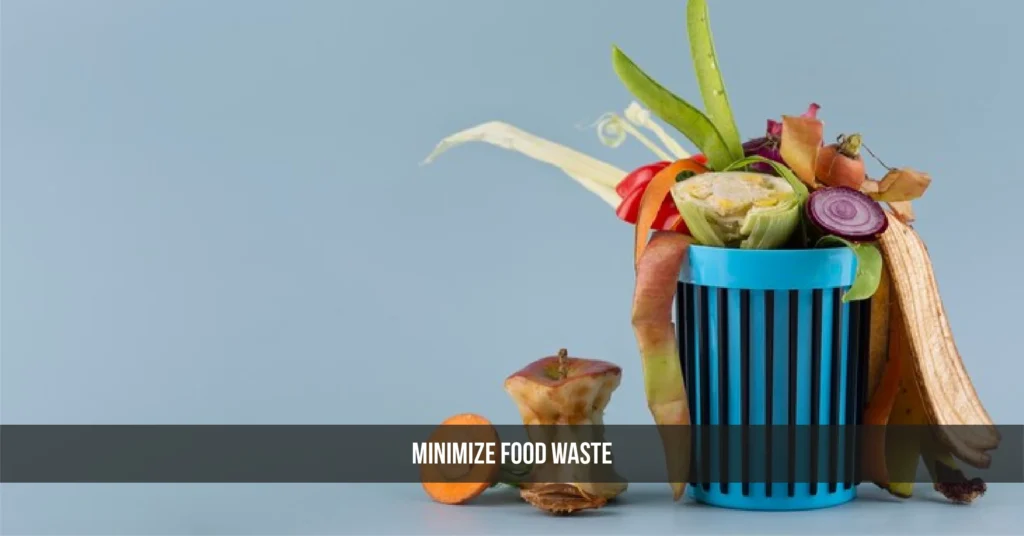
7. Invest in Energy-Efficient Appliances
The Importance of Energy Efficiency
Energy-efficient appliances use less electricity, reducing your utility bills and carbon footprint. They’re also designed to perform better, making your kitchen tasks easier and more efficient.
Top Energy-Efficient Kitchen Appliances
Here are some of the best options to consider:
| Appliance | Energy-Saving Features |
|---|---|
| Induction Cooktop | Heats food faster and uses less energy than traditional stoves. |
| Energy Star Fridge | Uses 15% less energy than non-certified models. |
| Dishwasher | Newer models use less water and energy per cycle. |
Conclusion:
Creating a non-toxic and waste-free kitchen doesn’t have to be overwhelming. By making small, intentional changes—like switching to non-toxic cookware, using eco-friendly cleaning products, and reducing plastic use—you can transform your kitchen into a healthier, more sustainable space. Composting, minimizing food waste, and choosing organic, locally sourced foods further enhance your efforts, while energy-efficient appliances help you save money and reduce your carbon footprint.
Remember, every step counts. Start with one or two changes and gradually incorporate more as you go. Not only will you be protecting your family’s health, but you’ll also be contributing to a cleaner, greener planet. Share your progress with others and inspire them to join the movement toward a non-toxic, waste-free lifestyle!
Also Read: 5 Tasty Ways to Cook Fish at Home
FAQs: Ways to Make Your Kitchen Non-Toxic and Waste-Free
What are the best non-toxic kitchen products?
Some of the best non-toxic kitchen products include stainless steel cookware, glass food storage containers, bamboo utensils, and natural cleaning solutions like vinegar and baking soda. These alternatives are safer for your health and the environment.
How can I reduce waste in my kitchen?
Start by composting food scraps, using reusable containers and wraps, and planning meals to avoid food waste. Small changes, like buying in bulk and avoiding single-use plastics, can also make a big difference.
What are the benefits of a waste-free kitchen?
A waste-free kitchen reduces your environmental impact, saves money, and promotes a healthier lifestyle. It also encourages mindful consumption and helps you appreciate the resources you have.
How do I choose non-toxic cookware?
Look for cookware made from materials like stainless steel, cast iron, ceramic, or glass. Avoid non-stick pans with chemical coatings, and opt for brands that prioritize safety and sustainability.
Can I really make a difference by composting?
Absolutely! Composting diverts food waste from landfills, reduces methane emissions, and creates nutrient-rich soil for gardening. Even small-scale composting can have a positive impact.
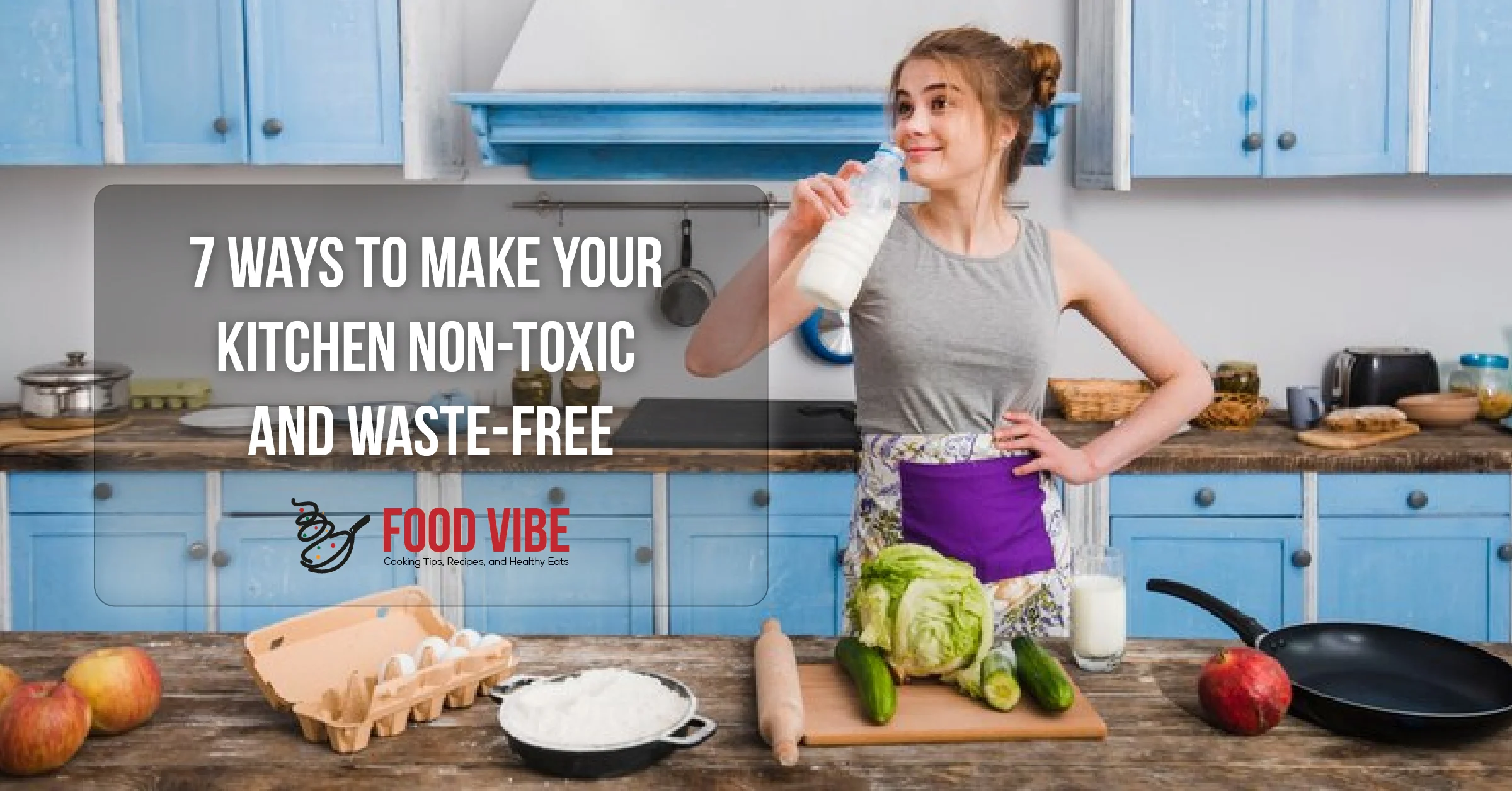

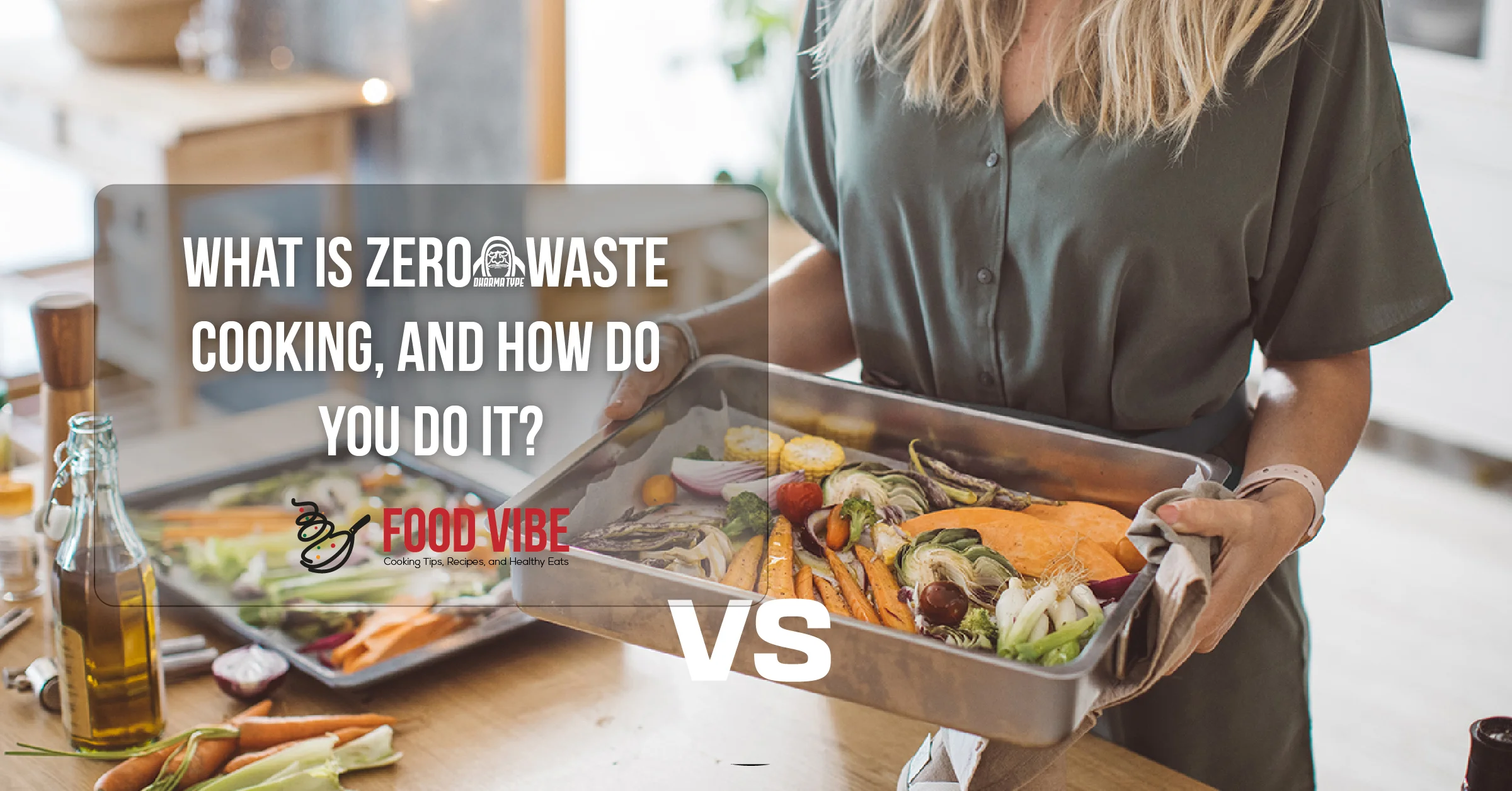
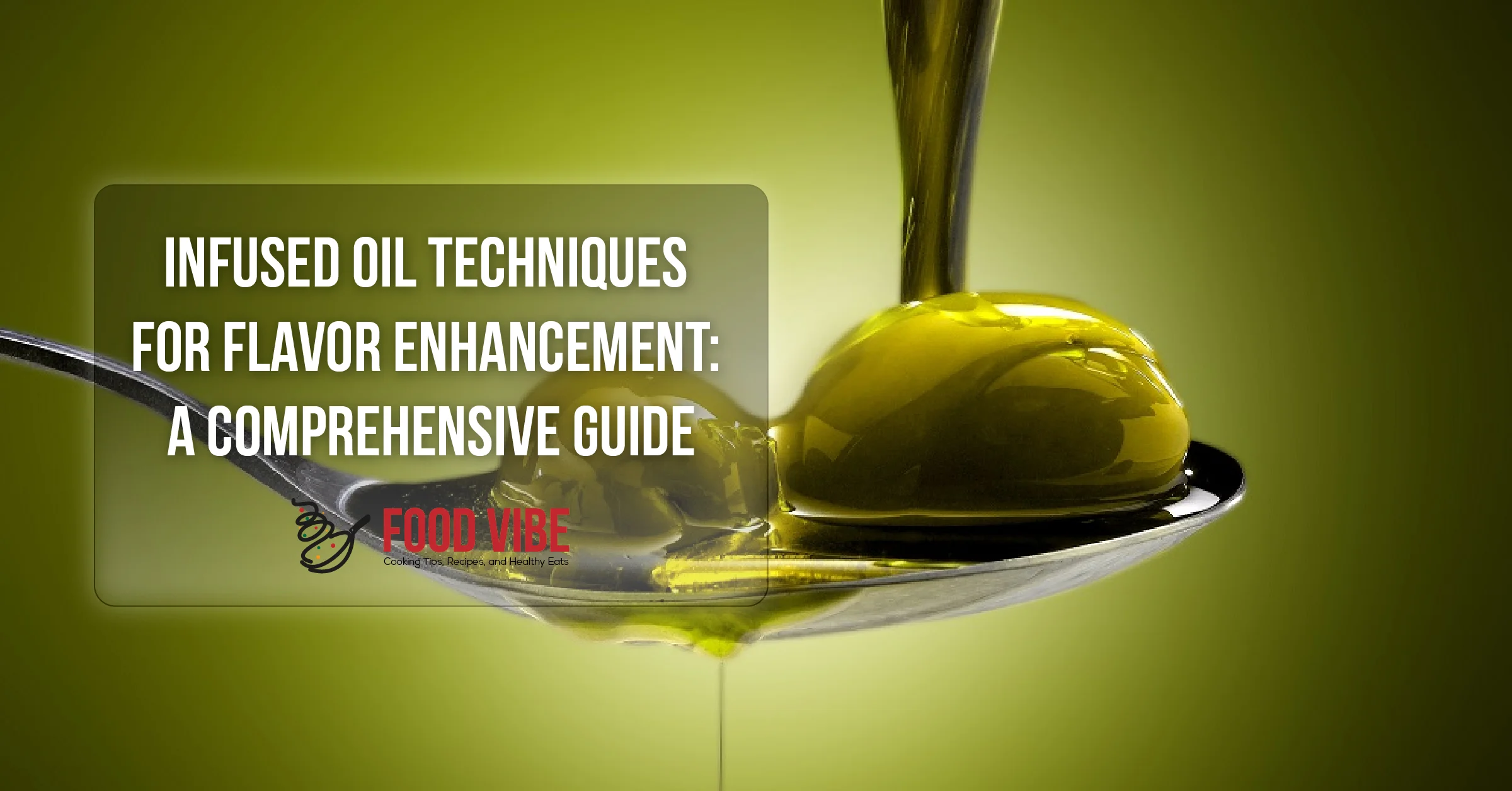

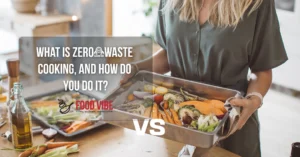


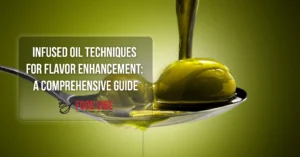





Post Comment